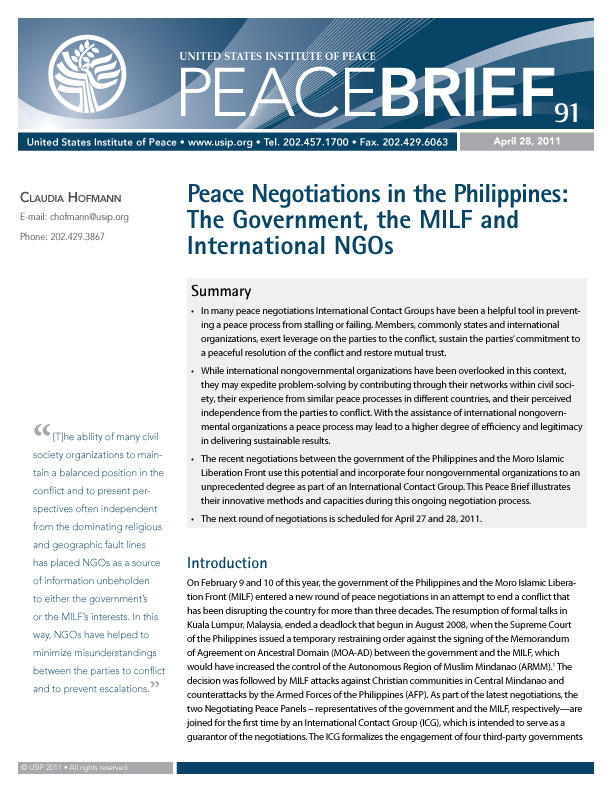In many peace negotiations International Contact Groups have been a helpful tool in preventing a peace process from stalling or failing. Members, commonly states and international organizations, exert leverage on the parties to the conflict, sustain the parties’ commitment to a peaceful resolution of the conflict and restore mutual trust.

Summary
- In many peace negotiations International Contact Groups have been a helpful tool in preventing a peace process from stalling or failing. Members, commonly states and international organizations, exert leverage on the parties to the conflict, sustain the parties’ commitment to a peaceful resolution of the conflict and restore mutual trust.
- While international nongovernmental organizations have been overlooked in this context, they may expedite problem-solving by contributing through their networks within civil society, their experience from similar peace processes in different countries, and their perceived independence from the parties to conflict. With the assistance of international nongovernmental organizations a peace process may lead to a higher degree of efficiency and legitimacy in delivering sustainable results.
- The recent negotiations between the government of the Philippines and the Moro Islamic Liberation Front use this potential and incorporate four nongovernmental organizations to an unprecedented degree as part of an International Contact Group. This Peace Brief illustrates their innovative methods and capacities during this ongoing negotiation process.
- The next round of negotiations is scheduled for April 27 and 28, 2011.
About this Brief
The MILF stands for a radical Islamic revivalist viewpoint and seeks self-determination for the traditionally Muslim Bangsamoro people in the southern parts of the Philippines. The MILF was founded after its split from the Moro National Liberation Front (MNLF) in 1977. Negotiations between the government of the Philippines and the MILF began in January 1997 but have been interrupted repeatedly. This Peace Brief seeks to shed light on the recent approach the parties to conflict have chosen to overcome the difficulties that have foiled peace negotiations in the past.
The author, Claudia Hofmann, is a Jennings Randolph TAPIR fellow at the United States Institute of Peace (USIP). This work was supported by a fellowship of the German Academic Exchange Service (DAAD).